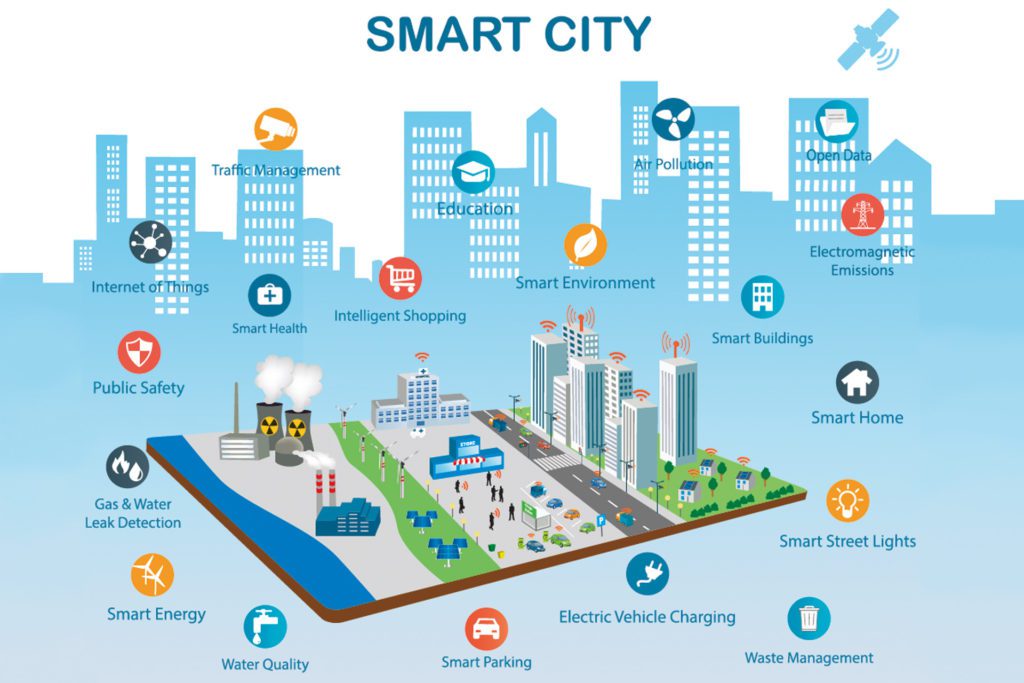
A smart city is an urban zone which uses different types of electronic systems and sensors to collect data. The smart city concept combines information and communication technology and several physical devices linked to Internet of Things networks to enhance adeptness of the city operations and services. The smart city concept is gaining important market prominence, mostly due to increasing demand for smart living, which has become a trend. Smart living involves advancements that impact people’s lives, enabling them to lead a new way of life.
Smart city inventions encourage the usage of emerging technologies such as Internet of Things (IoT), Artificial Intelligence (AI), big data, cloud storage technologies and data analytics to collect and analyze data and use key information for managing assets, services and resources.
Smart cities are developed urban areas designed with a perspective of creating high quality of life and sustainable economic development by through advancement in several key sectors including technology, economy, environment, mobility, people, and government. The primary focus of smart city projects is on improving energy efficiency and reducing the dependence on non-renewable resources for fuel. Smart cities offer enhanced public safety and security by detecting problems early on.
The major proponents of smart cities development broadly entail the presence of robust infrastructure, sustainable real estate, advanced communications, intelligent transportation, citizen safety, and improved market viability. Smart cities are planned to include smart homes, intelligent transportation, security and sustainability, smart buildings , and energy management, among other things, to render the best developmental options for authorities and decision makers.
For More Technical Insights — https://www.transparencymarketresearch.com/sample/sample.php?flag=B&rep_id=82243
